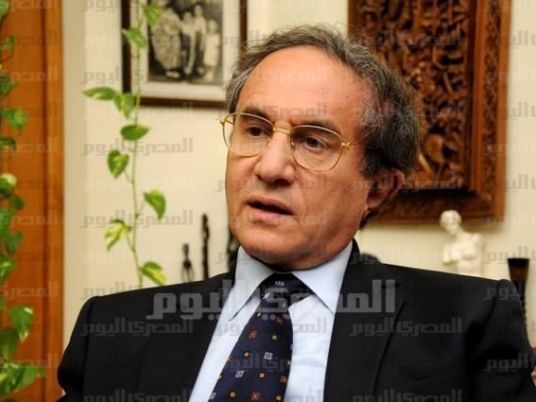
Political thinker Osama al-Ghazali Harb called for the revival of civil titles in Egypt, including the title of “Pasha,” but under a new framework that better aligns with changing economic and social realities.
This proposal came in an article in which Harb proposed granting honorary titles in exchange for large financial contributions made by the wealthy to the state.
Harb believed that the decision to abolish civil titles more than 70 years ago deprived society of an effective means of honoring public figures with outstanding achievements in areas such as culture, industry, and agriculture.
He cited Britain, where titles such as “Sir” and “Knight” are still awarded in recognition of prominent figures, such as the world-renowned Egyptian surgeon Sir Magdi Yacoub, who was honored by Queen Elizabeth II in 1991.
Harb proposed an organized return to these titles by establishing a specialized body that would oversee nominations according to strict criteria, which would then be presented to Parliament for approval.
This initiative could contribute to motivating high-net-worth individuals to contribute to public life and development, he added.
Harb gave examples by symbolic list of names he believes would qualify for these titles if the system were adopted, such as Naguib Pasha Sawiris, Talaat Pasha Mustafa, Mohamed Pasha Abul-Enein, Mounir Fakhry Pasha Abdel-Nour, Nassef Pasha Sawiris, and other well-known businessmen.
Speaking to to Al-Masry Al-Youm, Harb explained that the aim of the proposal is not to impose taxes, but rather to create an incentive mechanism that gives the wealthy a sense of appreciation and elevated social status through symbolic titles of a rich cultural character.
He emphasized that granting the title of “Pasha” does not signify a return to a class system, but rather serves as a “badge of honor” or “honorary degree” awarded in exchange for genuine contributions to supporting the national economy.
Harb said, despite the challenges facing it, Egypt possesses latent wealth in the hands of some of its citizens, and needs innovative means to motivate them to participate in development.
What’s in a title?
“Pasha” was not merely a title; it symbolized prestige, social and political status in Egypt for nearly a century and a half, from the reign of Muhammad Ali Pasha until the mid-twentieth century.
It was granted to senior statesmen, notables, and prominent officials as a form of honor and privilege.
According to the encyclopedia “History of Egyptian Ministries,” published by the General Egyptian Book Organization, the titles were initially granted by the Ottoman Sublime Porte, considering Egypt part of the Ottoman Empire.
The right then passed to the Sultan of Egypt after the imposition of the British protectorate in 1914, and then to the king after the declaration of the kingdom in 1922.
In 1915, Sultan Hussein Kamel issued a decree establishing an official system of civil ranks. This was followed in 1923 by Royal Decree No. 3, issued during the reign of King Fuad I, which regulated the granting of titles and honors.
Civil ranks were divided into five grades: “Presidency” for heads of government, “Excellency” for ministers, with the title “His Excellency”; “Pasha” for senior dignitaries and officials whose salaries exceeded LE1,800; and “Bey” for those whose salaries ranged between LE800 and LE1,200 or who had rendered distinguished services to the state.
Royal occasions, such as birthdays or accession to the throne, were a good time to submit applications for promotions and grant titles, as explained by the acting head of the Royal Court under King Farouk Hassan Youssef.
However, this system was officially abolished after the July 23, 1952 Revolution, pursuant to Decree No. 68 of 1952, as part of the state’s efforts to eliminate social class and achieve social justice.
Since then, titles have been replaced by “Respected” in official correspondence, and the prohibition on titles was included in the constitution from 1956 until the 2014 Constitution, which, in Article 26, prohibited the creation or revival of any civil ranks.
Despite the official prohibition, these titles continue to be used on the Egyptian street and in government offices, unofficially, particularly when addressing those with influence or wealth.
Edited translation from Al-Masry Al-Youm




